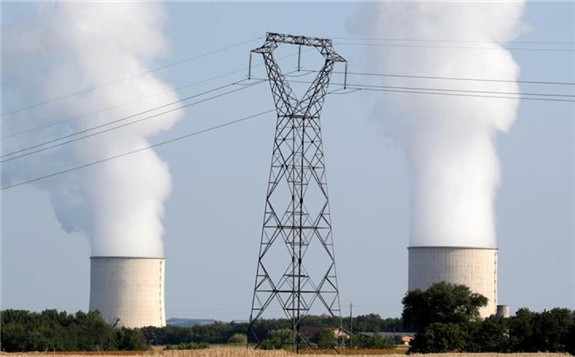India's installed nuclear power capacity has grown from 4,780 MW to 6,780 MW, an increase of over 40 per cent, in the last seven years, the government said on Wednesday.
 The current annual production of uranium in the country is not enough to meet the annual fuel requirement of all the operational uranium based nuclear power plants.
The current annual production of uranium in the country is not enough to meet the annual fuel requirement of all the operational uranium based nuclear power plants.
The country is pursuing an indigenous three-stage nuclear power programme to provide long term energy security in a sustainable manner, Minister of State in the Department of Space and Department of Atomic Energy Dr Jitendra Singh said in response to a question in the Lok Sabha.
"In addition, Light Water Reactors based on foreign cooperation are also being set up as additionalities. A large expansion programme of nuclear power is being undertaken to provide the country clean electricity," he said in a written response.
"In the last seven years, the installed nuclear power capacity grew from 4780 MW to 6780 MW, an increase of over 40 per cent," Singh said.
Responding to another question, the minister said the current annual production of uranium in the country is not enough to meet the annual fuel requirement of all the operational uranium based nuclear power plants.
"However, we are continuously exploring the possibility of alternate fuel based on thorium in this regard for which we have enough reserves. Further, the Department is importing uranium from different countries like Canada, Kazakhstan, Uzbekistan and Russia also," Singh said.
The Atomic Minerals Directorate for Exploration and Research (AMD), a constituent unit of the Department of Atomic Energy DAE, has the mandate to identify, evaluate and augment mineral resources of uranium, thorium, niobium, tantalum, beryllium, lithium, zirconium, titanium and rare earths containing uranium and thorium in the country, he said.
"As of November, 2021 AMD has established 3,58,496 tonne (t) in situ Uranium Oxide," he added.